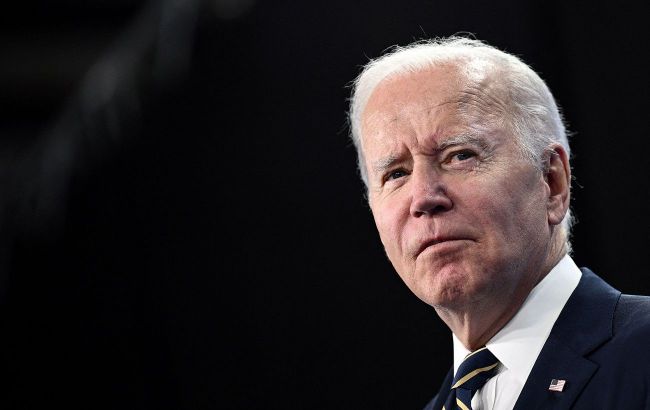Biden does not believe in all-out war in Middle East
 Photo: Joe Biden, President of the United States (Getty Images)
Photo: Joe Biden, President of the United States (Getty Images)
US President Joe Biden has stated that he does not believe the escalation in the Middle East will become a major war in the region. His remarks come amid Israel’s operations against Hamas and Hezbollah in Gaza and Lebanon, as well as heightened tensions between Israel and Iran, according to Reuters.
According to the American president, such an “all-out war” can be avoided, but more efforts are needed.
Responding to journalists' questions about his confidence in preventing such a conflict, Biden said, "How confident are you it's not going to rain? Look, I don't believe there is going to be an all-out war."
"I think we can avoid it," the US president added, “but there is a lot to do yet, a lot to do yet.” to de-escalate tensions in the Middle East.
Biden reaffirmed the US commitment to continue supporting and defending Israel. When asked by the media if the US would send troops to aid its ally, he said, "We have already helped Israel. We are going to protect Israel," the president emphasized.
Escalation in the Middle East and the US stance
The latest surge in tensions in the region comes as Israel continues its fight against Hezbollah militants, who Iran supports. At the same time, the Israel Defense Forces (IDF) are conducting an operation against Hamas in Gaza, which also receives backing from Tehran.
Notably, after a series of explosions in Lebanon targeting pagers and other electronic devices used by Hezbollah militants, Israel was reportedly behind the operation. However, the country's president has denied these allegations.
Later, on September 28, the Israeli army launched a massive strike on Lebanese territory, killing Hezbollah leader Hassan Nasrallah.
At the end of September, the Pentagon announced that the US would deploy several thousand troops and additional fighter jets to the Middle East to bolster Israel's security.
Additionally, reports indicated that on October 1, the Israeli army initiated a raid in southern Lebanon aimed at destroying Hezbollah's infrastructure. The ground operation is being accompanied by airstrikes, particularly on Beirut and its suburbs.
On the same day, Iran launched a missile attack on Israel, firing around 180 ballistic missiles, according to the IDF. For more details on the strikes, read RBC-Ukraine's article.
Moreover, on October 2, US officials said the White House would focus on coordination with Israel over the coming days as they seek to agree on a potential response to the Iranian attack.

